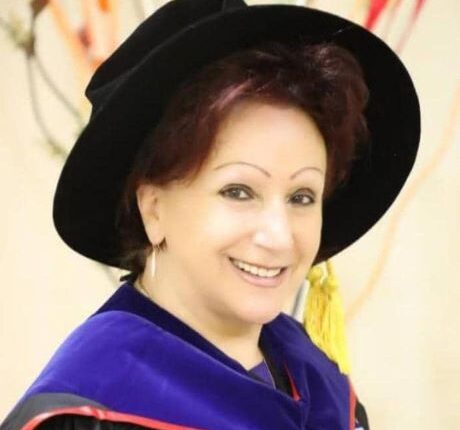- May 15, 2025
- Posted by: itmanager
- Category: Education, Latest News, Tertiary Education, Uncategorized, University

Distinguished guests, esteemed learned silk, members of the Law Students Society, faculty members, students, and all gathered here today, it is with profound honor and a deep sense of responsibility that I stand before you in commemoration of the 3rd Prof. Smaranda Olarinde Annual Lecture.
I am deeply humbled to have this prestigious lecture series christened in my name by the Law Students Society of Afe Babalola University (ABUAD), Ado-Ekiti. I am grateful for this recognition, which signifies the collective commitment to academic excellence, thoughtful leadership, and the pursuit of justice.
Today, we come together to reflect on a theme that is as relevant as it is compelling — “The Future of Arbitration and ADR: Positioning Yourself for Relevance.” This theme speaks to the very essence of what it means to remain adaptable, forward-thinking, and strategically positioned in a world where the dynamics of dispute resolution are constantly evolving. This subject resonates deeply with me as an academic who has witnessed the transformative power of Alternative Dispute Resolution (ADR).
In the legal profession, we are witnessing a paradigm shift from traditional litigation to more nuanced, efficient, and flexible methods of resolving disputes. Arbitration, mediation, negotiation, and other forms of ADR have emerged as indispensable tools in ensuring that justice is not only done but seen to be done swiftly and cost-effectively. The question before us, therefore, is: “How we can position ourselves to remain relevant in this evolving landscape?”.
To the young and aspiring lawyers, the future of arbitration and ADR holds immense opportunities. However, to seize these opportunities, we must be proactive in acquiring the requisite skills, embracing new technologies, and adapting to global best practices. The modern arbitrator is not just a learned individual but a strategic thinker, a negotiator, and, increasingly, a tech-savvy professional capable of resolving complex disputes across jurisdictions.
As we look toward the future, we must embrace continuous learning and professional development. Organizations like the Chartered Institute of Arbitrators (CIArb) and other ADR-focused institutions provide avenues for acquiring specialized training and certifications that will distinguish you as experts in the field.
Moreover, we must acknowledge the impact of technology in shaping the future of arbitration and ADR. Online dispute resolution (ODR) platforms, blockchain for secure agreements, and AI-powered case management systems are transforming how disputes are resolved. It is, therefore, crucial for us to stay informed, stay prepared, and stay ahead.
I would like to extend my profound appreciation to our distinguished keynote speakers for this year’s lecture: Hon. Dayo Apata, SAN, FCArb, the Attorney General and Commissioner for Justice, Ado Ekiti, whose exceptional leadership and expertise in arbitration and ADR have made significant impacts both locally and nationally; and Mrs. Aanuoluwapo Omoloju, BL, LL.M, FCArb., FCIArb (UK), FICMC, FINC, CMC, Managing Partner at Harris Isibo, Omoloju & Co., whose remarkable contributions to the field of dispute resolution have set a standard of excellence that we all aspire to.
Additionally, I would like to acknowledge the relentless efforts of the President of the Law Students Society, Mr. Asala Ayodeji, whose steadfast commitment to fostering academic and professional growth among the students has made events like this possible.
I with unwavering resolve, appeal that we recommit ourselves to cultivating a culture of innovation, excellence, and strategic foresight in the realm of arbitration and ADR. Let us not only aspire to remain relevant but to rise as leaders, shaping the future of dispute resolution with vision and purpose.
Thank you for your attention.
Prof. E. Smaranda Olarinde, FCArb, FCAI
Vice-Chancellor, Afe Babalola University,
Ado-Ekiti

